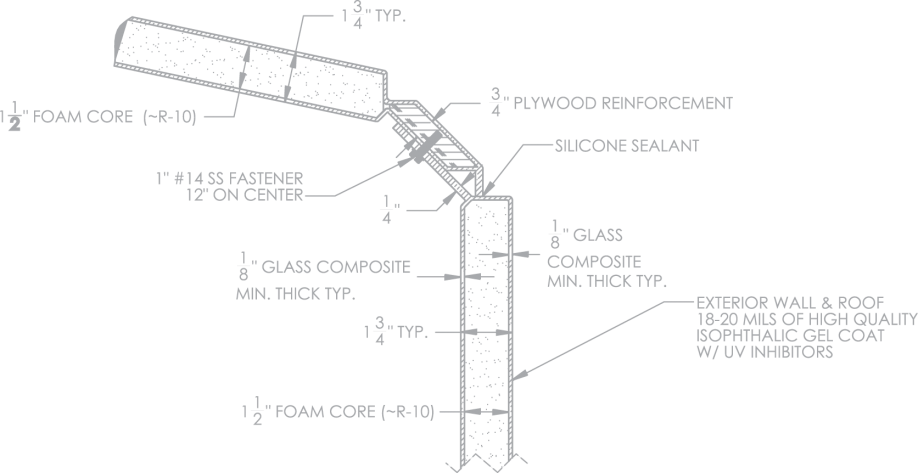Checking Out the Uses and Advantages of Recycled Composites in Modern Industries
The amalgamation of recycled products with innovative composite innovations offers a promising avenue for improving sustainability, strength, and cost-efficiency throughout different markets. As sectors look for innovative services to resolve environmental worries and boost functional performances, the unification of recycled compounds arises as an engaging alternative.
Ecological Advantages of Recycled Compounds
The utilization of recycled composites in modern industries provides significant environmental advantages, adding to the reduction of waste and the conservation of natural resources. By including recycled compounds right into producing processes, industries can lower their dependence on virgin products, thus minimizing the amount of waste produced and the power required for extraction and production. This shift towards using recycled composites assists in diverting materials from land fills, easing the problem on waste administration systems, and reducing greenhouse gas emissions connected with typical production methods.
In addition, using recycled composites advertises the preservation of natural deposits such as timber, minerals, and water, which are usually diminished via the extraction and handling of basic materials (composites). By extending the lifespan of products through recycling, sectors can assist protect ecological communities and biodiversity by lowering the demand for new sources. In general, the adoption of recycled composites in modern-day sectors plays a vital role in advertising sustainability and mitigating the ecological effect of manufacturing processes
Boosted Toughness in Product Manufacturing
With an emphasis on durability and robustness, incorporating recycled compounds into item manufacturing procedures enhances longevity and sustainability. By making use of recycled composites, suppliers can produce items that are not only solid but additionally resistant to tear and put on, making them optimal for lasting use in numerous industries. The mix of various materials in recycled compounds can frequently result in improved toughness and resilience contrasted to traditional products, offering a cost-effective option for generating lasting products.
One of the essential benefits of making use of recycled compounds in product production is the ability to tailor the product homes to fulfill details toughness requirements. By changing the structure and manufacturing methods, manufacturers can personalize the recycled compounds to stand up to rough ecological problems, hefty loads, or frequent use without endangering on efficiency. This flexibility in style and production enables the creation of highly sturdy items that maintain their integrity over time, decreasing the requirement for regular replacements and eventually contributing to a more sustainable manufacturing process.
Cost-Effectiveness and Economic Advantages
Integrating recycled composites into product manufacturing not just boosts durability and sustainability yet also provides substantial cost-effectiveness and financial advantages. Utilizing recycled compounds can bring about reduced material expenses as recycled products are typically less costly than virgin materials. Additionally, recycling composite materials can decrease waste disposal expenditures and lower the demand for landfill space, adding to overall expense savings for markets.

Development and Design Adaptability With Recycled Composites
Utilizing recycled compounds in contemporary industries supplies unparalleled possibilities for advancement and style flexibility. By including recycled materials into composite production processes, firms can push the limits of traditional layout restraints and check out brand-new opportunities. The flexibility find more information of recycled composites enables the development of complex shapes and structures that could not be attainable with standard materials.
Among the crucial benefits of recycled composites is their capability to be built into numerous forms, offering designers the liberty to explore unique sizes and shapes. composites. This adaptability opens up a globe of creative possibilities, enabling the advancement of lightweight yet resilient items that meet the certain needs of different industries
Furthermore, using recycled compounds advertises sustainable methods and sustains the circular economic situation by minimizing waste and decreasing the environmental effect of producing procedures. This emphasis on environment-friendly layout solutions aligns with the growing pattern in the direction of sustainability in modern-day industries, making recycled composites an important source for cutting-edge and forward-thinking business.
Applications Throughout Numerous Industries
Recycled compounds find diverse and impactful applications across a large range of markets because of their one-of-a-kind properties and sustainability advantages. In the vehicle market, these products are progressively utilized for producing lightweight and durable components, enhancing gas efficiency and decreasing carbon emissions. The aerospace market take advantage of recycled composites in the manufacturing of airplane components, where the materials' strength-to-weight proportion is critical for guaranteeing safety and performance. In building and construction, these compounds are utilized for producing strong yet environmentally friendly building products, contributing to sustainable infrastructure growth. The renewable resource sector uses recycled composites in wind turbine blades and solar panels, using their stamina and resistance to severe environmental problems. Additionally, the marine industry makes use of these materials for making boat hulls and components, supplying boosted durability and deterioration resistance. The versatility and sustainability of recycled composites make them useful across numerous markets, driving development and ecological stewardship. composites.
Verdict
To conclude, the usage of recycled composites in contemporary industries uses substantial environmental benefits, boosted sturdiness in product production, cost-effectiveness, and financial advantages. Moreover, making use of recycled composites enables advancement and style adaptability throughout various industries. On the whole, the adoption Homepage of recycled composites presents a functional and sustainable remedy for fulfilling the demands of the industry while also reducing ecological impact.

One of the essential advantages of making use of recycled composites in product production is the capability to tailor the product properties to fulfill particular sturdiness demands. Using recycled compounds can lead to minimized material costs as recycled products are commonly much less costly than virgin products. The aerospace market benefits from recycled compounds in the production of airplane parts, where the materials' strength-to-weight proportion is critical for making certain security and efficiency.